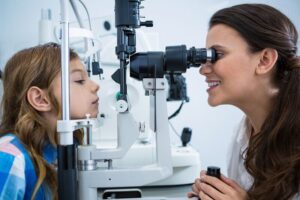
The experience of having a spinal disorder can be stressful and worrying. It is essential to receive a deep understanding of your condition from a specialist to alleviate this fear and stress. There are several orthopedic centers, including Alliance Spine Associates, LLC you can gain information about your spinal disorder. If you have an underlying spine concern (s), do not hesitate to seek treatment because an untreated spine problem can hinder you from carrying out your activities. Below are common spine conditions you should report to an orthopedic healthcare facility.
Scoliosis
Scoliosis is a common condition that can twist your spine out of shape. The most common scoliosis is common among kids during their growth spurt before puberty. If you notice uneven shoulders or waist and one large hip in your children, take them for treatment, as these are common symptoms of the condition. Untreated scoliosis can worsen, but a brace can assist in preventing the disease and the need for surgery.
Spinal Cord Injury
Injuries from a fall, sports mishap or car crash can contribute to spinal cord injury. Usually, your spinal cord becomes bruised, or the blood supply to the spine is blocked. As a result, your brain will be unable to control part of your body, leading to serious impact. The likelihood of getting better varies depending on the level of your injury. Therefore, you should visit an orthopedic center for a thorough diagnosis of the extent of your injury.
Osteoporosis
Osteoporosis is a common spine concern affecting most aged people. As you age, your bone mass reduces, leading to weakened bones. When the weakened bones in your spine are damaged, they can lead to fractures, hunched posture, and collapsed vertebrae. Sometimes it can be complex to identify a weakened bone since symptoms rarely occur until your bones become osteoporotic. Fortunately, your doctor can prescribe the right exercise regime and diet to improve your posture, balance, and bone health.
Spinal Stenosis
The spine contains spaces for the spinal cord and nerves that branch out of it. Whenever these spaces shrink, your bone starts pressing against the nerves. Although you may not notice the effects immediately when the nerves are impacted, you will experience numbness, pain, or tingling, or your muscles will become weak. If you have osteoarthritis, you should see your doctor since osteoarthritis increases the likelihood of having spinal stenosis. Your orthopedic specialist can create space for the nerves if the spinal stenosis is severe.
Sciatica
Sciatica is a common spine concern that causes pain, weakness, or numbness in your lower back which radiates down your legs due to a damaged sciatic nerve. Sometimes, your damaged sciatic nerve can result from a lessening spine that compresses the nerve, bone spur, or herniated disc. Luckily, steroid injections, physical therapy, and working with an orthopedic spine specialist can assist in managing your pain. Your provider can also prescribe painkillers, anti-inflammatories, and muscle relaxants to improve the symptoms.
Spinal disorders can reduce your range of motion and cause pain and discomfort, limiting your ability to carry your daily activities, like carrying objects on your back. When left untreated, you can experience permanent disabilities like uneven shoulders. Therefore, if you experience pain, numbness, or tingling in the spine, visit an orthopedic healthcare facility to receive a comprehensive diagnosis and treatment. Your provider can prescribe medication, including physical therapy, injections, and surgery, depending on the nature of your injury.





